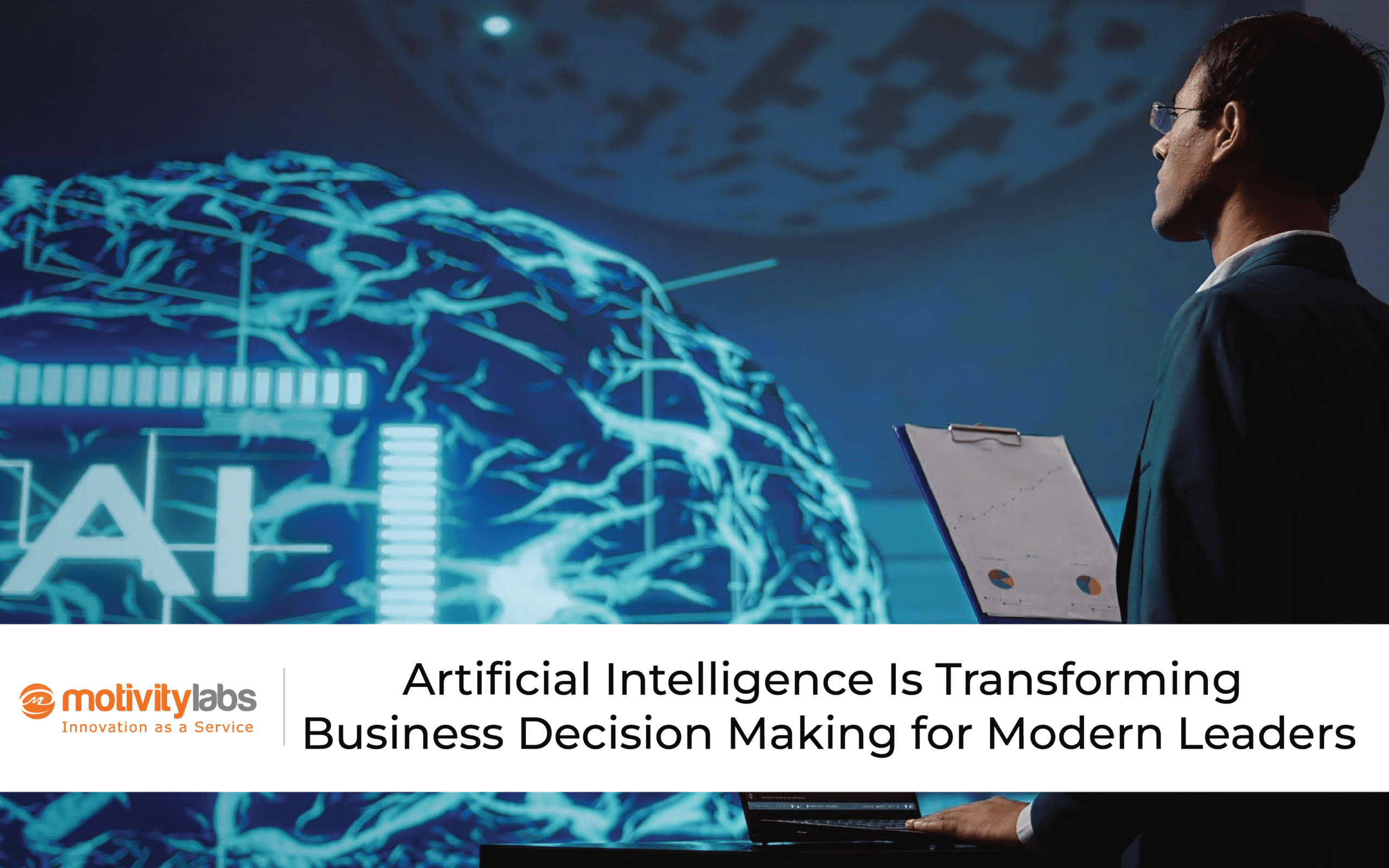The banking and financial services industry has been at the forefront of leveraging the power of AI and big data analytics. A study explores the application of AI and Big data analytics in banking to enhance customer experience, optimize decision-making, automate personal and SME credit issuance, prevent financial fraud, and improve risk management. These emerging technologies are transforming the way banks and financial institutions operate, making them more efficient, personalized, and customer-centric.
Nowadays, adopting rising technologies has become crucial for every business. The banking industry is undergoing a significant transformation, driven by the convergence of artificial intelligence (AI) and big data analytics. As financial institutions strive to enhance customer experiences, streamline operations, and gain a competitive edge, the integration of these powerful technologies is proving to be a game-changer. Personalization services are now a key strategy for enhancing customer engagement and attracting new potential customers. Let’s explore how AI and big data are transforming the banking industry.
Big Data Analytics in Banking:
Banks are changing fast. They’re handling way more information now. This means they need to find smart ways to use all this data. That’s where big data comes in. Let’s see how it’s changing banking.
Big data analytics is enabling banks to gain deeper insights into customer behavior, market trends, and risk patterns. By leveraging advanced algorithms and machine learning models, banks can make more informed decisions, optimize their product offerings, and personalize their services to better meet the needs of their clients.
By analyzing large volumes of structured and unstructured data, banks can make more informed decisions, identify new revenue streams, and enhance their overall operational efficiency.
Big data analytic solutions are, therefore, growing into importance within the BFSI landscape. They have put banks in a better position to see big datasets, hence making it easier for them to pinpoint trends, improve decision-making, and boost customer experience. With more and more institutions harnessing these technologies, the competitive edge given by big data analytics in banking cannot be overestimated.
AI In Banking:
Artificial intelligence is also playing a crucial role in the banking sector. AI-powered solutions can automate various tasks, such as fraud detection, credit risk assessment, and customer service, This not only improves efficiency but also reduces the potential for human error, ultimately enhancing the overall reliability and security of banking operations and to focus on strategic initiatives. AI-driven chatbots and virtual assistants are enhancing the customer experience by providing personalized and immediate responses to inquiries.
AI has become a game-changer for the banking industry, dramatically improving how banks operate and serve their customers. By using AI, banks can make better choices, use their money wisely, and give customers more personalized help. Smart tools like machine learning, understanding what people say (natural language processing), and predicting things (predictive analytics) are changing how banks handle risks, catch cheats, and talk to customers.
Many businesspeople concur that artificial intelligence (AI) is the banking industry’s fastest game changer. JPMorgan Chase CEO Jamie Dimon said artificial intelligence (AI) is revolutionizing the banking industry and altering every aspect of bank operations.
So, the implementation of AI-based banking is a necessity rather than a trend in the dynamic and constantly changing digital environment of modern times.
Below, we explore the key aspects of how AI and big data are influencing the banking sector.
Impacts of Big Data and AI for the Banking Industry

The fusion of big data analytics in banking and artificial intelligence is transforming how banks operate. By analyzing vast amounts of data, banks can now predict customer behavior, tailor services to individual needs, and anticipate market trends. This not only enhances customer satisfaction but also positions banks to stay ahead of the competition.
AI’s role in banking extends beyond customer service. It plays a crucial part in risk management, fraud detection, and even in ensuring regulatory compliance. With AI-driven tools, banks can monitor transactions in real-time, detecting anomalies that could indicate fraudulent activity or regulatory breaches. The future of AI in banking is bright, with endless possibilities for innovation and improvement.
Big data analytics in banking is revolutionizing how financial institutions manage their operations. By leveraging massive amounts of data, banks can now provide more personalized services, predict customer behavior, and identify potential risks before they materialize. The future of AI in banking lies in its ability to analyze vast datasets in real-time, offering insights that were previously unattainable. As AI algorithms become more sophisticated, they will enable banking AI solutions that can enhance decision-making processes, from credit scoring to fraud detection.
Big data analytics solutions for BFSI (Banking, Financial Services, and Insurance) are already helping institutions optimize their resources, reduce operational costs, and improve customer satisfaction. As these technologies continue to evolve, the banking sector will likely see an even greater reliance on artificial intelligence and data analytics, making the future of AI in banking a topic of immense interest.
Applications of Artificial Intelligence and Big Data Analytics in Global Banking
Artificial intelligence and data analytics are being applied in various aspects of global banking, transforming the way institutions operate. For instance, AI-driven chatbots are now commonplace in customer service, offering quick and accurate responses to queries around the clock. These banking AI solutions not only enhance customer experience but also free up human resources for more complex tasks.
Furthermore, big data analytics in banking allows for the creation of more accurate financial models. By analyzing trends and patterns within enormous datasets, banks can better predict market movements and optimize their investment strategies. The future of AI in banking is closely tied to its ability to continually learn and adapt, making it an invaluable tool for global financial institutions.
Implementation of AI and Big Data in Banking
Implementation of AI in some Global banks
Implementation of Big Data in some Global banks
Implications of Big Data and AI for Regulatory Compliance and Supervision
Regulatory compliance and supervision are critical areas where big data analytics solutions for BFSI are making a significant impact. The sheer volume of data that banks must manage for compliance purposes is staggering. However, with the help of artificial intelligence and data analytics, banks can now automate many of these processes, reducing the risk of human error and ensuring that regulations are met more efficiently.
AI-powered tools are also aiding regulatory bodies in supervising financial institutions. By analyzing transaction data in real-time, these tools can detect unusual patterns that may indicate fraudulent activity or non-compliance with regulations. The future of AI in banking will likely see further advancements in these areas, with more sophisticated tools being developed to manage the ever-growing complexity of financial regulations.
Limitations and Challenges Facing the Banking Industry & How AI and Big Data Analytics Can Address Them

1. Data Security Concerns
Challenge: The banking industry is a prime target for cyber-attacks, leading to concerns over data breaches, identity theft, and unauthorized access to sensitive information.
Solution with AI & Big Data Analytics: AI-driven security systems use machine learning algorithms to detect unusual patterns and anomalies in real-time, enabling rapid response to potential threats. Big data analytics enhances the ability to analyze vast amounts of security-related data, improving threat detection and reducing the risk of breaches.
2. Regulatory Compliance
Challenge: Banks must adhere to complex and ever-changing regulations, which can be resource-intensive and prone to human error.
Solution with AI & Big Data Analytics: AI automates compliance processes by continuously monitoring transactions and regulatory changes, ensuring that all operations are in line with legal requirements. Big data analytics enables banks to manage and analyze the massive amounts of data required for compliance, reducing the risk of penalties and enhancing efficiency.
3. Legacy Systems
Challenge: Many banks operate on outdated legacy systems that hinder innovation, slow down processes, and increase maintenance costs.
Solution with AI & Big Data Analytics: AI and big data solutions can be integrated with legacy systems to optimize performance, enhance scalability, and enable digital transformation without the need for a complete overhaul. These technologies help banks modernize their infrastructure, improving operational efficiency and customer service.
4. Managing Vast Amounts of Data
Challenge: The volume of data generated by banking operations is enormous, making it challenging to extract valuable insights and make informed decisions.
Solution with AI & Big Data Analytics: AI and big data analytics enable banks to process and analyze large datasets quickly and efficiently. By leveraging these technologies, banks can gain deeper insights into customer behavior, market trends, and risk patterns, leading to more informed decision-making and personalized customer experiences.
5. Customer Experience
Challenge: With increasing competition, banks need to offer personalized and seamless customer experiences to retain and attract clients.
Solution with AI & Big Data Analytics: AI-powered chatbots, virtual assistants, and predictive analytics allow banks to offer personalized services tailored to individual customer needs. Big data analytics helps in understanding customer preferences and behavior, enabling banks to deliver targeted products and services that enhance customer satisfaction and loyalty.
6. Fraud Detection and Prevention
Challenge: Financial fraud is a significant risk, with sophisticated methods continually emerging.
Solution with AI & Big Data Analytics: AI systems are adept at detecting fraudulent activities by analyzing transaction patterns and identifying suspicious behavior. Big data analytics enhances this capability by allowing banks to process vast amounts of data in real-time, improving the accuracy of fraud detection and prevention.
7. Operational Efficiency
Challenge: Inefficient operations can lead to higher costs, delays, and reduced customer satisfaction.
Solution with AI & Big Data Analytics: AI automates routine tasks, such as document processing, loan approval, and customer service, freeing up human resources for more strategic roles. Big data analytics optimizes resource allocation, streamlines processes, and identifies areas for improvement, leading to enhanced operational efficiency.
By addressing these challenges with AI and big data analytics, banks can not only overcome current limitations but also position themselves for future success in a rapidly evolving financial landscape.
Furthermore, the integration of AI and big data analytics is enabling banks to develop more personalized products and services. By analyzing customer data, banks can tailor their offerings to individual needs, improving customer satisfaction and loyalty.
As the banking industry continues to evolve, the adoption of AI and big data analytics is expected to accelerate, driving innovation, improving operational efficiency, and play an important role in fraud detection, risk management, compliance with regulations, and overall process optimization
Looking ahead, the future of banking is poised to be even more data-driven and AI-powered. As financial institutions continue to invest in these transformative technologies, we can expect to see further advancements in areas such as personalized wealth management, intelligent chatbots, and predictive analytics for risk management.
Our Approach and How We Help Clients with AI and Big Data Analytics Solutions
At Motivity Labs we specialize in delivering cutting-edge AI and big data analytics solutions tailored to your BFSI industry. With our presence in India and the USA, we serve globally helping our clients to enhance their customer experiences, optimize decision-making, and drive innovation. Our approach focuses on leveraging advanced technologies to enable personalized services, improve risk management, and ensure regulatory compliance, empowering our clients to stay competitive in a rapidly evolving digital landscape.
With our expertise in AI and big data analytics, we empower BFSI clients to stay ahead of the curve, adapt to the ever-evolving digital landscape, and achieve long-term success.
Contact us today to discover how we can help you stay ahead with latest technologies and innovations to improve your industry performance.


